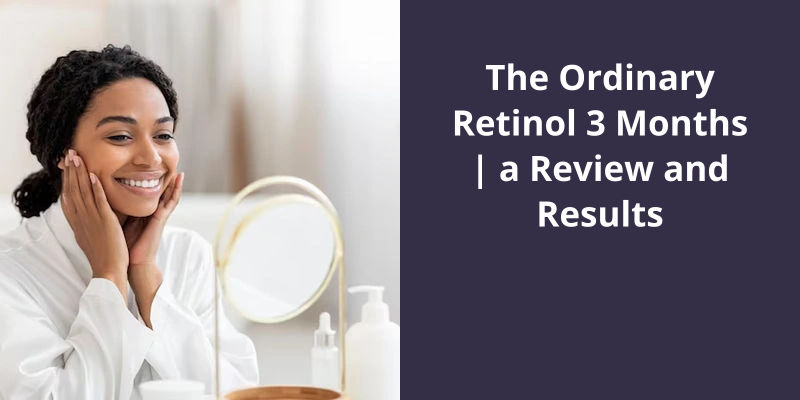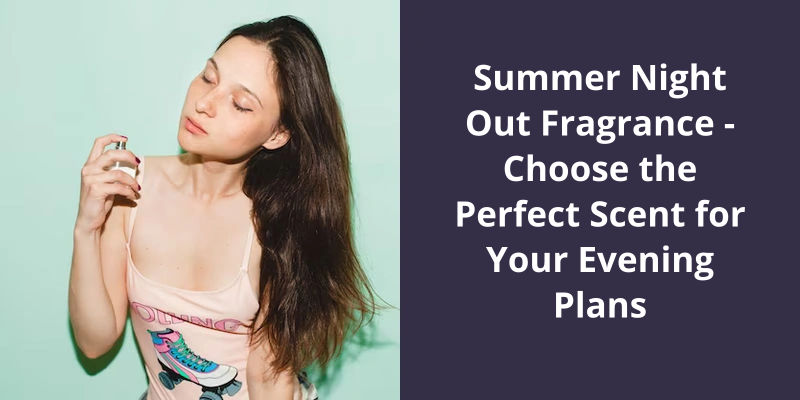The Ordinary Retinol, when used consistently for 3 months, exhibits noticeable changes in skin texture and appearance. This serum from The Ordinary, renowned for its skincare products, is rich in retinol, a potent active ingredient proven to stimulate cell regeneration and build collagen. As a result, it leads to a significant reduction in fine lines, wrinkles, and discoloration after three months of diligent use. Besides, it promotes a healthier, brighter, and smoother complexion. Despite it potentially causing some initial dryness or flaking due to its strength, with continued use, the skin often builds tolerance. It’s crucial to use it in the evening routine and apply sunscreen in the daytime because retinol can make skin more sensitive to UV rays.

How Long Can You Use Retinol After Opening?
When it comes to skincare, retinol is a popular ingredient that many people swear by. It’s been known to improve skin texture, reduce wrinkles, and even out skin tone. However, like all skincare products, retinol has an expiration date. After opening a retinol product, it’s generally safe to use for around six months. This is because retinol can lose it’s potency over time, making it less effective.
Mascara is another skincare product that’s a relatively short shelf life. After opening a mascara tube, it’s generally recommended to use it for around three months. This is because bacteria can easily grow in the moist environment of a mascara tube, which can potentially cause eye infections. To avoid this, it’s important to replace your mascara regularly and not share it with others.
On the other end of the spectrum, sunscreen has a much longer shelf life. Most sunscreens are designed to last for around two to three years when unopened. Once opened, they can still last for up to a year, although it’s important to check the expiration date on the bottle. Using out-of-date sunscreen can potentially lead to sunburn and other skin damage, so it’s important to use fresh product.
Other skincare products, such as moisturizers and cleansers, can also have different shelf lives. Depending on the ingredients and formulation, it’s generally safe to use these products for around six months to a year after opening. However, it’s important to pay attention to any changes in the texture, smell, or color of your skincare products. If something seems off, it may be a sign that the product has expired and should be replaced.
How to Properly Store and Extend the Shelf Life of Skincare Products
- Store your skincare products in a cool and dry place away from direct sunlight.
- Keep your skincare products sealed tightly to prevent air and bacteria from getting inside.
- Don’t share your skincare products with anyone to avoid cross-contamination.
- Clean your hands before applying any product to your face to prevent bacteria from transferring onto your skin.
- Use a spatula or scoop to take out products instead of using your fingers to minimize contamination.
- Check the expiration dates on your skincare products and discard them if they’ve expired.
- Consider using airless pump containers for your skincare products to prevent air exposure.
- Don’t mix expired or old skincare products with new ones.
- Store your skincare products according to the instructions on the label.
- Don’t store your skincare products in the bathroom as the humidity and temperature fluctuations can affect their shelf life.
When it comes to using skincare products, knowing how long they remain effective is key to getting the best results. For retinol users specifically, understanding how the product’s potency can be affected is especially important since it’s a light-sensitive ingredient. However, with the right storage and packaging, you can ensure that your retinol product remains potent for as long as possible.
Does Retinol Lose It’s Potency?
The effectiveness of retinol can be affected by several factors, including the formulation, packaging, and exposure to air, light, and heat. Retinol is a powerful antioxidant that helps to increase cell turnover, boost collagen production, and diminish the appearance of wrinkles, fine lines, and hyperpigmentation. However, it’s potency can diminish if the product isn’t stored properly, leading to reduced efficacy and potential irritation.
To ensure that your retinol product remains potent, it’s important to store it in an airtight container and avoid leaving the bottle open for an extended period of time. Additionally, exposure to heat can also cause retinol to break down and lose it’s potency, so it’s best to store your retinol product in a cool, dry place away from direct sunlight or heat sources.
Look for products that come in opaque, airtight containers that will help to keep out light and air. Additionally, be sure to follow the manufacturers instructions for use and storage to ensure that the product remains effective.
The preservative system used in the product also plays a role in the potency of retinol. Look for products with preservatives that are mild and won’t cause irritation or dryness, but also ensure that the product has a good shelf life.
In summary, retinol can lose it’s potency over time if not stored properly. This can be caused by exposure to air, light, and heat, as well as by the packaging and preservative system used in the product. Overall, it’s advisable to pay attention to the expiry date of the product and not to use an expired product.
How to Choose the Right Retinol Product Based on Skin Type and Concerns.
In order to choose the right retinol product for your skin type and concerns, it’s important to consider factors such as your skin’s sensitivity, level of hydration, and any existing issues such as acne or wrinkles. Consult with a dermatologist or esthetician to determine which retinol product will best suit your individual needs.
However, some people may wonder whether it’s safe to continue using retinol after it’s expired. While it may be tempting to try and get the most out of a product, using expired retinol can lead to potential side effects and reduced efficacy. Therefore, it’s important to understand the risks before deciding whether or not to use expired retinol.
Can I Use the Ordinary Retinol After Expiration Date?
Using expired retinol anything or any other expired skin care product can have a negative impact on the skin. It’s essential to keep track of the shelf life of your skincare products, including retinol, to get the most out of your investment.
The chemical structure of retinol can change as it ages, rendering it less potent and efficient.
However, not all retinol formulations are created equal, and some may have a shorter expiration date than others. When purchasing retinol, make sure to double-check the expiration date to ensure that you can get the most out of your purchase.
While it may be tempting to use the expired product in an effort not to waste your money, doing so could be detrimental to your skin health.
How to Properly Store Retinol to Extend It’s Shelf Life
- Store retinol in a cool, dry place.
- Avoid storing retinol in a bathroom or other humid area, as moisture can break down the product.
- Keep retinol away from direct sunlight and heat, which can further damage the product.
- Store retinol in it’s original packaging or an airtight container to prevent oxidation.
- Check the expiration date on your retinol product before storing to ensure it’s shelf life hasn’t already expired.
Source: Does Retinol Expire (Go Bad)? – The Beauty Bee
While retinol is a popular skincare ingredient known for it’s anti-aging benefits, there are concerns about whether it can still be effective after prolonged use. Studies have shown that cell turnover is no longer increased after three months of usage, which is why many experts recommend taking a three-month break in between use. So, can retinol be used after three months? Let’s find out.
Can Retinol Be Used After 3 Months?
Retinol, a form of vitamin A, has long been hailed as a miracle ingredient for anti-aging. Not only does it boost collagen production to reduce fine lines and wrinkles, but it also helps to even out skin tone and reduce acne breakouts. However, many people are unsure about how long they should use retinol before taking a break.
Experts recommend starting with a retinyl palmitate or low concentration retinol product and using it consistently for three months before taking a break. This is due to research that suggests that after this time period, cell turnover is no longer increased, and there may be little benefit to continued use. A three month break allows the skin to fully recover before starting another cycle.
It’s important to note that not everyone sees results immediately when using retinol, as it can take several weeks for the skin to adjust to the ingredient. During this time, it’s crucial to avoid overusing the product, as this can lead to redness, peeling, and irritation. Patients should start with a pea-sized amount of retinol and gradually increase the frequency of use as their skin adjusts.
In addition to using retinol for three months at a time, there are some other tips that can help to maximize the benefits of this ingredient. For example, patients should always use sunscreen during the day when using retinol, as it can increase the skins sensitivity to the sun. It’s also important to avoid using other exfoliating products or harsh cleansers while using retinol, as this can further irritate the skin.
However, it’s important to approach it’s use thoughtfully and to take breaks as needed in order to ensure the best results.
The Benefits of Using Retinol for Acne-Prone Skin
- Retinol can help reduce acne breakouts by unclogging pores
- Retinol can also help fade acne scars and hyperpigmentation
- Regular use of retinol can improve skin texture and tone
- Retinol can also increase cell turnover, leading to younger-looking skin
- Retinol can be a cost-effective solution compared to other acne treatments
- It’s important to use retinol as directed and to start with a lower concentration to avoid irritation
While hyaluronic acid can last up to a year if properly preserved, there’s been debate as to how long retinol can remain effective. Some sources claim that retinol may only remain effective for around six months, while others say it can last up to one year.
Does Retinol Only Last 3 Months?
When it comes to skincare ingredients, there’s a lot of confusion and misinformation floating around. One of the most prevalent myths is that retinol only lasts three months before losing it’s potency. While it’s true that many skincare products have a shelf life, the exact duration can vary depending on the formulation and the quality of the ingredients.
Retinol, a type of vitamin A, is a powerful anti-aging ingredient that’s widely used in skincare products. It works by increasing cell turnover and stimulating collagen production, leading to smoother, firmer, and more even-toned skin. However, retinol is notoriously unstable and can degrade quickly when exposed to air, light, or heat.
To maximize the effectiveness of retinol, it’s essential to choose a product that’s formulated with stable, high-quality ingredients and packaged in an opaque, airtight container. This is why it’s crucial to use retinol consistently and store it properly to ensure that you’re getting the most benefit from your skincare regimen.
Hyaluronic acid, on the other hand, is a hydrating ingredient that can help plump up the skin and reduce the appearance of fine lines and wrinkles. It’s naturally found in the skin and can hold up to 1,000 times it’s weight in water, making it an excellent moisturizing agent. Unlike retinol, hyaluronic acid is more stable and can retain it’s potency for up to a year if adequately preserved.
To ensure that your skincare products are as effective as possible, it’s crucial to pay attention to the expiration dates and storage recommendations on the packaging. Additionally, it’s a good idea to purchase products from reputable brands that use high-quality ingredients and rigorous testing protocols to ensure that their products are safe and effective.
How to Incorporate Retinol Into Your Skincare Routine for Optimal Results
- Cleanse your face thoroughly before applying retinol. This helps the retinol penetrate deeper into your skin.
- Start with a low percentage of retinol (around 0.25%) to avoid irritation and redness. You can gradually increase the percentage over time.
- Apply retinol at night, as it can make your skin more sensitive to sunlight. Use sunscreen during the day to protect your skin.
- Wait 20-30 minutes after cleansing before applying retinol to ensure that your skin is completely dry. This helps the retinol be more effective.
- Use a moisturizer after applying retinol to help reduce any dryness or flakiness.
- Be patient when using retinol. It can take several weeks to see results, but the benefits are well worth it.
- Don’t use retinol if you’re pregnant or breastfeeding, as it can be harmful to your baby.
- If you experience severe irritation or redness, stop using retinol and consult a dermatologist.
Conclusion
In conclusion, the use of ordinary retinol for three months has shown promising results in improving skin texture, reducing fine lines, and supporting collagen production. It's important to note that retinol can cause mild irritation, so it's best to start slow and gradually increase usage. Additionally, always wear SPF during the day as retinol can increase sun sensitivity.




